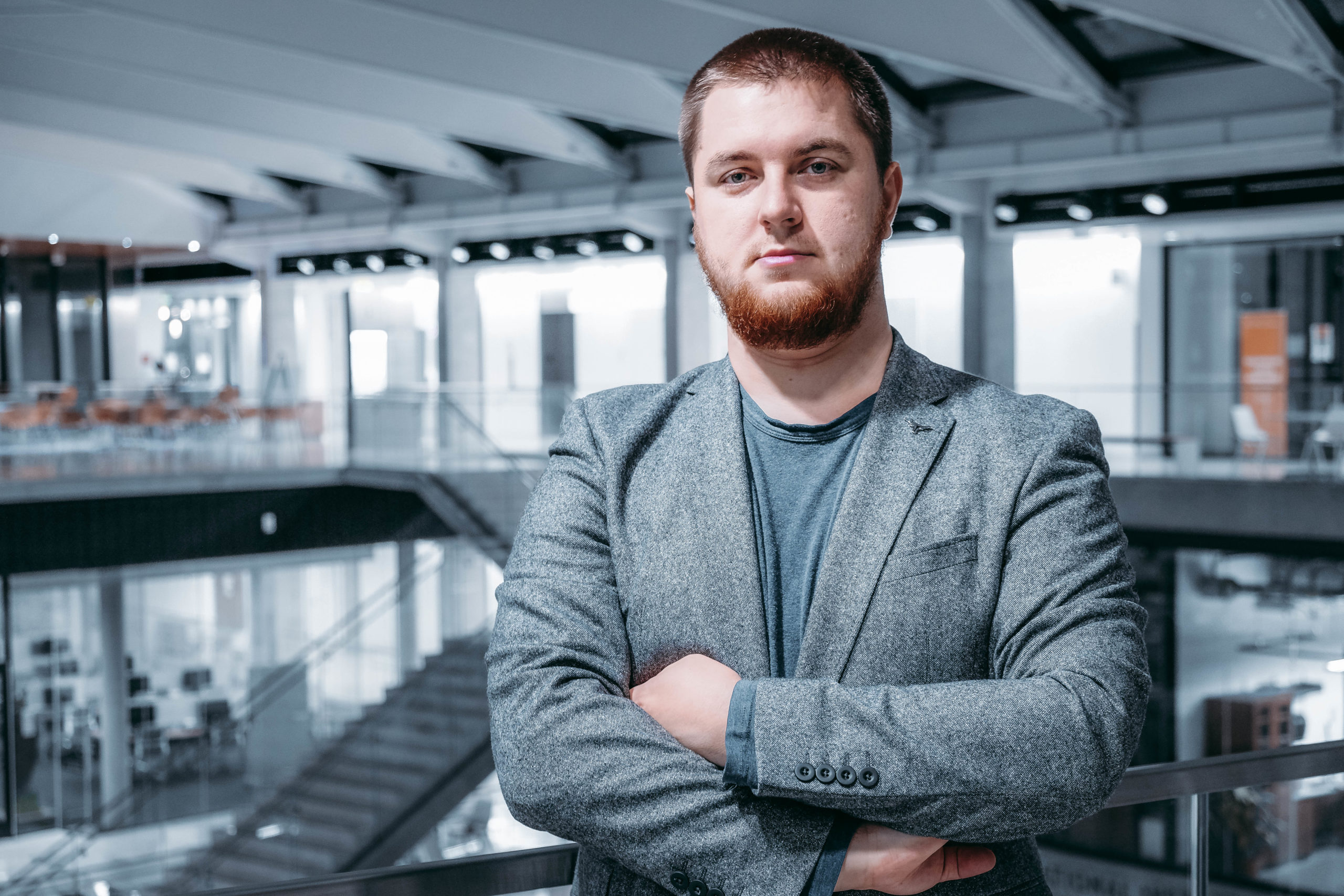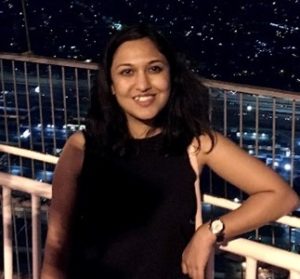FACULTY ADVISORS
Deji Akinwande is an Endowed Faculty Professor at the University of Texas at Austin. He received the PhD degree from Stanford University in 2009. His research focuses on 2D materials and nanoelectronics/technology, pioneering device innovations from lab towards applications. Prof. Akinwande has been honored with the 2018 Fulbright Specialist Award, 2017 Bessel-Humboldt Research Award, the U.S Presidential PECASE award, the inaugural Gordon Moore Inventor Fellow award, the inaugural IEEE Nano Geim and Novoselov Graphene Prize, the IEEE “Early Career Award” in Nanotechnology, the NSF CAREER award, several DoD Young Investigator awards, and was a past recipient of fellowships from the Kilby/TI, Ford Foundation, Alfred P. Sloan Foundation, 3M, and Stanford DARE Initiative. His research achievements have been featured by Nature news, Time magazine, BBC, Discover magazine, and many media outlets. He serves as an Editor for the IEEE Electron Device Letters and Nature NPJ 2D Materials and Applications. He Chairs the 2020 Gordon Research Conference on 2D materials, and the 2019 Device Research Conference (DRC), and was the 2018 chair of the Nano-device committee of IEEE IEDM Conference He is a Fellow of the American Physical Society (APS).
Jean Anne C. Incorvia has been an Assistant Professor in the Department of Electrical and Computer Engineering at The University of Texas at Austin since 2017. Dr. Incorvia works on developing nanodevices for the future of computing using emerging physics and materials. This has included research in spintronics, the intersection of 2D materials and spintronics, and using low-dimensional materials for interconnects and transistors. Dr. Incorvia received a Ph.D. in physics from Harvard University in 2015, cross-registered at MIT, where she was a Department of Energy Graduate Student Fellow. From 2015-2017 she completed a postdoc at Stanford University in the department of electrical engineering, working in nanoelectronics. She received her bachelor’s in physics from UC Berkeley in 2008. In addition to research, Dr. Incorvia is devoted to STEM outreach at all levels, including graduate student mentoring and K-12 outreach.
OFFICERS
President
Suyogya is a Ph.D student in ECE department at University of Texas at Austin. She completed her B.Sc. in Physics with minor in Mathematics from Southeastern Louisiana Univeristy. Her research interest lies in spintronics devices with focus on exploring new materials for magnetic tunnel junctions. Apart from research, she has been actively involved in teaching and volunteering at several science clubs and schools in Austin. In her free time, she likes travelling, hiking, reading books and cooking.
Corporate relations
Rachel is a doctoral student in the Integrated Circuits and Systems (ICS) track, currently working in the UTDA lab, with research interests in Physical Design Automation and Hardware Security. She worked as a CAD intern with the Physical Design team at Nvidia, Austin during Summer’18. Previously, she had also worked with the Physical Design team at Nvidia, Bangalore, India as Sr. ASIC Engineer during 2013 to 2017. She holds a bachelor’s degree (graduated in 2011) and a master’s degree (graduated in 2013) in Electronics and Communication Engineering from Anna University, Chennai, India.
Sam graduated from the University of Minnesota-Twin Cities with a degree in Electrical Engineering in 2020, and decided to come to UT Austin to escape the cold. His research interests are in spintronics, magnetic materials, and neuromorphic computing. Outside of the lab, Sam likes to exercise by swimming and running. For fun, he likes to hang out with friends and try to sing at karaoke.
Treasurer/vtools manager
Subrahmanya Teja
Subrahmanya is a PhD student working in the area of nanoelectronics. Specially he is interested in the circuit-device co-design of novel materials (IMT, RRAM, STTMRAM). He received his bachelor’s from IIT Gandhinagar, India in 2016. He joined IEEE as a student member in 2013. He loves playing cricket, football and squash during his leisure.
Jayanth R T
Jayanth is a Master’s student in Prof. Deji Akiwande’s Nano research lab. He completed his Bachelor’s in Electronics and Communication Engineering at the renowned Sri Jayachamarajendra College of Engineering, Mysore, India (Top 5% of the class). He is interested in both the fundamental/theoretical physics of condensed matter and the
seemingly disparate fields of systems and molecular neuroscience, and biophysics.He is presently working on 2D TMDs for understanding both their fundamental physical make-up and for their possible applications in
single-cell/neuronal stimulations and recordings/mappings. Although he is an engineer by training, he is always excited and interested in doing research at the basic scientific level in both physics and neuroscience. He is a professionally trained mridangam (an indian classical percussion instrument) player having completed the pre-vidwath training under the traditional guru-shishya tradition and also involves himself as a lead singer for a UT based Rock ‘n’ Roll band. His hobbies/interests: Trained musician – Vocals and Percussion, Literature, Eastern and Western Philosophy, Vedanta, Writing articles and essays, Sci-fi and Non-fiction novels, Football (Soccer!).
Website/social media manager
Emily graduated from University of Minnesota-Twin Cities with a Bachelor of Electrical Engineering prior to joining the University of Texas at Austin. She is currently a Ph.D. student majoring in Electrical and Computer Engineering, SSE track. Her research area focuses on thin-film transistors using Indium-Gallium-Zinc-Oxide and Molybdenum disulfide as the semiconductor layer. She is also interested in organic electrochemical transistors for neuromorphic computing and sensing applications. Outside of lab, Emily enjoys paddleboarding, hiking, traveling, and spending time with her two cats.
Events coordinators
Sirish is a Ph.D. student at The University of Texas at Austin, majoring in Electrical and Computer Engineering, ICS track. He graduated with a Bachelor of Technology degree in Electronics and Communication Engineering from Delhi Technological University (formerly Delhi College of Engineering) in 2018. Prior to joining the Circuits Research Lab at UT, he was an Analog Design Engineer in the High-Speed Signal Conditioning group at Texas Instruments India till June 2021. His current research focuses on Hardware Security. Sirish was the Head of Research and Development, IEEE DTU Student Branch during his undergraduate, and was actively involved in Delhi sectional and Region 10 activities of the IEEE. Apart from building circuits, he loves to teach, and enjoys cooking and driving to new places at leisure.

Zulfidin (bobojon) Khodzhaev
Zulfidin (Bobojon) is a Ph.D. student in Electrical and Computer Engineering (ECE) at The University of Texas at Austin (UT Austin). Originally from Tajikistan, he lived in Turkey and Greece and then moved to the USA for his doctoral degree.
Bobojon received M.S. and two B.S. degrees:
M.S. in Physics from Oklahoma State University, USA.
B.S. in Electronics and Communication Engineering (dual degree) from Istanbul Technical University, Turkey.
B.S. in Physics Engineering from Istanbul Technical University, Turkey.
During the MS program, he worked on the dynamics of the Hopfions and Skyrmions as well as antiferromagnetic switching. His current focus is on spintronic materials and neuromorphic computing: skyrmion dynamics, connections to neuroscience, and neuroscience-inspired architectures. His unique skill includes technology development and technology transfer, especially, high-tech with a demonstrated history of successful technology implementation in university-level and state-level business plan competitions. Bobojon is more or less fluent in 5 different languages with Tajik (classic Persian) as his native language. As a person, he is very outgoing, welcoming, and always focused on his work. Personal Website (https://www.zulfidinkhodzhaev.com)
Postdoc officers
 Dmitry Kireev
Dmitry Kireev
Dmitry is currently a postdoctoral research fellow at the University of Texas at Austin. He is a part of the Microelectronic Research Center and the Electrical and Computer Engineering department. Dmitry is currently working on the real life applications of two-dimensional materials such as graphene, MoS2, and others in the fields of bioelectronics, neuroprosthesis, soft tissue, and epidermal electronics. Within the scope of recent (2020) pandemic, Dmitry has shifted his focus towards building graphene based biosensor targeted towards COVID-19 virus detection. He finished his PhD work in 2017 at the Institute of Bioelectronics (ICS-8) of Forschungszentrum Julich, Germany, working on graphene-based devices for neuroprosthesis, interaction with neuronal cells and general bioelectronics. Dmitry is a recipient of a prestigious EMM-NANO scholarship and performed his MSc study in KULeuven and Chalmers University with majors in nanoelectronics (2011-2013). Prior to finding his way into bioelectronics, Dmitry has completed his BSc (2010) and MSc (2012) in the Moscow’s National Research University of Electronic Technology at the department of quantum physics (uff) and nanoelectronics, with a major on micro- and nanoelectronics. Beyond the science, technology, research, and scientific interests, he loves to interact (especially if there is some coffee involved) with graduate and undergraduate students, encourage them to do science, and stimulate them to find their own way in it.
Nupur Navlakha
Nupur is a Postdoctoral Researcher at Microelectronics Research Centre in the Department of Electrical & Computer Engineering, University of Texas at Austin. Her research focuses on nanoelectronics, simulation and modeling of devices, and their applications. Currently, her work is based on DFT studies of 2D systems such as transition metal dichalcogenide field effect transistors. She received her Ph.D. degree from Department of Electrical Engineering at Indian Institute of Technology Indore, India, in 2018 with specialization in MOS design for capacitorless dynamic memory. She completed her master’s degree in VLSI Design from the Malaviya National Institute of Technology Jaipur, India in 2013. She has worked as Assistant Professor at Manipal University Jaipur from 2013 – 2014.
FORMER OFFICERS
- Neelotpala Kumar
- Mahshid Alamdar
- Aaron Muhowski
- Amritesh Rai
- Jacob Rohan
- Vignesh Radhakrishnan
- Farzad Mokhtari-Koushyar
- Deepyanti Taneja
- Martha I. Serna
FACULTY ADVISORS
Deji Akinwande is an Endowed Faculty Professor at the University of Texas at Austin. He received the PhD degree from Stanford University in 2009. His research focuses on 2D materials and nanoelectronics/technology, pioneering device innovations from lab towards applications. Prof. Akinwande has been honored with the 2018 Fulbright Specialist Award, 2017 Bessel-Humboldt Research Award, the U.S Presidential PECASE award, the inaugural Gordon Moore Inventor Fellow award, the inaugural IEEE Nano Geim and Novoselov Graphene Prize, the IEEE “Early Career Award” in Nanotechnology, the NSF CAREER award, several DoD Young Investigator awards, and was a past recipient of fellowships from the Kilby/TI, Ford Foundation, Alfred P. Sloan Foundation, 3M, and Stanford DARE Initiative. His research achievements have been featured by Nature news, Time magazine, BBC, Discover magazine, and many media outlets. He serves as an Editor for the IEEE Electron Device Letters and Nature NPJ 2D Materials and Applications. He Chairs the 2020 Gordon Research Conference on 2D materials, and the 2019 Device Research Conference (DRC), and was the 2018 chair of the Nano-device committee of IEEE IEDM Conference He is a Fellow of the American Physical Society (APS).
Jean Anne C. Incorvia has been an Assistant Professor in the Department of Electrical and Computer Engineering at The University of Texas at Austin since 2017. Dr. Incorvia works on developing nanodevices for the future of computing using emerging physics and materials. This has included research in spintronics, the intersection of 2D materials and spintronics, and using low-dimensional materials for interconnects and transistors. Dr. Incorvia received a Ph.D. in physics from Harvard University in 2015, cross-registered at MIT, where she was a Department of Energy Graduate Student Fellow. From 2015-2017 she completed a postdoc at Stanford University in the department of electrical engineering, working in nanoelectronics. She received her bachelor’s in physics from UC Berkeley in 2008. In addition to research, Dr. Incorvia is devoted to STEM outreach at all levels, including graduate student mentoring and K-12 outreach.
OFFICERS
President
Suyogya is a Ph.D student in ECE department at University of Texas at Austin. She completed her B.Sc. in Physics with minor in Mathematics from Southeastern Louisiana Univeristy. Her research interest lies in spintronics devices with focus on exploring new materials for magnetic tunnel junctions. Apart from research, she has been actively involved in teaching and volunteering at several science clubs and schools in Austin. In her free time, she likes travelling, hiking, reading books and cooking.
Corporate relations
Rachel is a doctoral student in the Integrated Circuits and Systems (ICS) track, currently working in the UTDA lab, with research interests in Physical Design Automation and Hardware Security. She worked as a CAD intern with the Physical Design team at Nvidia, Austin during Summer’18. Previously, she had also worked with the Physical Design team at Nvidia, Bangalore, India as Sr. ASIC Engineer during 2013 to 2017. She holds a bachelor’s degree (graduated in 2011) and a master’s degree (graduated in 2013) in Electronics and Communication Engineering from Anna University, Chennai, India.
Sam graduated from the University of Minnesota-Twin Cities with a degree in Electrical Engineering in 2020, and decided to come to UT Austin to escape the cold. His research interests are in spintronics, magnetic materials, and neuromorphic computing. Outside of the lab, Sam likes to exercise by swimming and running. For fun, he likes to hang out with friends and try to sing at karaoke.
Treasurer/vtools manager
Subrahmanya Teja
Subrahmanya is a PhD student working in the area of nanoelectronics. Specially he is interested in the circuit-device co-design of novel materials (IMT, RRAM, STTMRAM). He received his bachelor’s from IIT Gandhinagar, India in 2016. He joined IEEE as a student member in 2013. He loves playing cricket, football and squash during his leisure.
Jayanth R T
Jayanth is a Master’s student in Prof. Deji Akiwande’s Nano research lab. He completed his Bachelor’s in Electronics and Communication Engineering at the renowned Sri Jayachamarajendra College of Engineering, Mysore, India (Top 5% of the class). He is interested in both the fundamental/theoretical physics of condensed matter and the
seemingly disparate fields of systems and molecular neuroscience, and biophysics.He is presently working on 2D TMDs for understanding both their fundamental physical make-up and for their possible applications in
single-cell/neuronal stimulations and recordings/mappings. Although he is an engineer by training, he is always excited and interested in doing research at the basic scientific level in both physics and neuroscience. He is a professionally trained mridangam (an indian classical percussion instrument) player having completed the pre-vidwath training under the traditional guru-shishya tradition and also involves himself as a lead singer for a UT based Rock ‘n’ Roll band. His hobbies/interests: Trained musician – Vocals and Percussion, Literature, Eastern and Western Philosophy, Vedanta, Writing articles and essays, Sci-fi and Non-fiction novels, Football (Soccer!).
Website/social media manager
Emily graduated from University of Minnesota-Twin Cities with a Bachelor of Electrical Engineering prior to joining the University of Texas at Austin. She is currently a Ph.D. student majoring in Electrical and Computer Engineering, SSE track. Her research area focuses on thin-film transistors using Indium-Gallium-Zinc-Oxide and Molybdenum disulfide as the semiconductor layer. She is also interested in organic electrochemical transistors for neuromorphic computing and sensing applications. Outside of lab, Emily enjoys paddleboarding, hiking, traveling, and spending time with her two cats.
Events coordinators
Sirish is a Ph.D. student at The University of Texas at Austin, majoring in Electrical and Computer Engineering, ICS track. He graduated with a Bachelor of Technology degree in Electronics and Communication Engineering from Delhi Technological University (formerly Delhi College of Engineering) in 2018. Prior to joining the Circuits Research Lab at UT, he was an Analog Design Engineer in the High-Speed Signal Conditioning group at Texas Instruments India till June 2021. His current research focuses on Hardware Security. Sirish was the Head of Research and Development, IEEE DTU Student Branch during his undergraduate, and was actively involved in Delhi sectional and Region 10 activities of the IEEE. Apart from building circuits, he loves to teach, and enjoys cooking and driving to new places at leisure.

Zulfidin (bobojon) Khodzhaev
Zulfidin (Bobojon) is a Ph.D. student in Electrical and Computer Engineering (ECE) at The University of Texas at Austin (UT Austin). Originally from Tajikistan, he lived in Turkey and Greece and then moved to the USA for his doctoral degree.
Bobojon received M.S. and two B.S. degrees:
M.S. in Physics from Oklahoma State University, USA.
B.S. in Electronics and Communication Engineering (dual degree) from Istanbul Technical University, Turkey.
B.S. in Physics Engineering from Istanbul Technical University, Turkey.
During the MS program, he worked on the dynamics of the Hopfions and Skyrmions as well as antiferromagnetic switching. His current focus is on spintronic materials and neuromorphic computing: skyrmion dynamics, connections to neuroscience, and neuroscience-inspired architectures. His unique skill includes technology development and technology transfer, especially, high-tech with a demonstrated history of successful technology implementation in university-level and state-level business plan competitions. Bobojon is more or less fluent in 5 different languages with Tajik (classic Persian) as his native language. As a person, he is very outgoing, welcoming, and always focused on his work. Personal Website (https://www.zulfidinkhodzhaev.com)
Postdoc officers
 Dmitry Kireev
Dmitry Kireev
Dmitry is currently a postdoctoral research fellow at the University of Texas at Austin. He is a part of the Microelectronic Research Center and the Electrical and Computer Engineering department. Dmitry is currently working on the real life applications of two-dimensional materials such as graphene, MoS2, and others in the fields of bioelectronics, neuroprosthesis, soft tissue, and epidermal electronics. Within the scope of recent (2020) pandemic, Dmitry has shifted his focus towards building graphene based biosensor targeted towards COVID-19 virus detection. He finished his PhD work in 2017 at the Institute of Bioelectronics (ICS-8) of Forschungszentrum Julich, Germany, working on graphene-based devices for neuroprosthesis, interaction with neuronal cells and general bioelectronics. Dmitry is a recipient of a prestigious EMM-NANO scholarship and performed his MSc study in KULeuven and Chalmers University with majors in nanoelectronics (2011-2013). Prior to finding his way into bioelectronics, Dmitry has completed his BSc (2010) and MSc (2012) in the Moscow’s National Research University of Electronic Technology at the department of quantum physics (uff) and nanoelectronics, with a major on micro- and nanoelectronics. Beyond the science, technology, research, and scientific interests, he loves to interact (especially if there is some coffee involved) with graduate and undergraduate students, encourage them to do science, and stimulate them to find their own way in it.
Nupur Navlakha
Nupur is a Postdoctoral Researcher at Microelectronics Research Centre in the Department of Electrical & Computer Engineering, University of Texas at Austin. Her research focuses on nanoelectronics, simulation and modeling of devices, and their applications. Currently, her work is based on DFT studies of 2D systems such as transition metal dichalcogenide field effect transistors. She received her Ph.D. degree from Department of Electrical Engineering at Indian Institute of Technology Indore, India, in 2018 with specialization in MOS design for capacitorless dynamic memory. She completed her master’s degree in VLSI Design from the Malaviya National Institute of Technology Jaipur, India in 2013. She has worked as Assistant Professor at Manipal University Jaipur from 2013 – 2014.
FORMER OFFICERS
- Neelotpala Kumar
- Mahshid Alamdar
- Aaron Muhowski
- Amritesh Rai
- Jacob Rohan
- Vignesh Radhakrishnan
- Farzad Mokhtari-Koushyar
- Deepyanti Taneja
- Martha I. Serna










